Website Close To Iran's Security Chief Dismisses Rumors About His Ouster
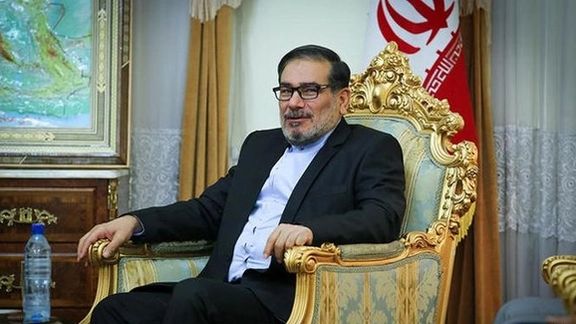
Nour News has dismissed rumors that Iran’s national security chief Ali Shamkhani will be replaced after one of his former aides received the death penalty for spying.

Nour News has dismissed rumors that Iran’s national security chief Ali Shamkhani will be replaced after one of his former aides received the death penalty for spying.
The website close to the Supreme National Security Council in a note published Friday accused “radical circles” of spreading the rumor after Alireza Akbari a former top official close to Shamkhani was sentenced to death earlier this week as a “British spy”.
Without mentioning Shamkhani by name, Nour news said radical elements who endanger national security by making outrageous claims decided to take advantage of Akbari’s case to spread harmful rumors.
Akbari had been deputy defense minister under the reformist President Mohammad Khatami, from 1997 to 2005 and an advocate of the 2015 nuclear accord with the West.
UK foreign secretary James Cleverly Thursday called on Tehran not to execute Akbari who is dual British-Iranian citizen.
A source close to the Islamic Revolutionary Guard Corps has provided documents to Iran International showing that the death sentence for Alireza Akbari was a move to weaken Shamkhani’s position in the clerical regime.
It seems that President Ebrahim Raisi, Intelligence Minister Esmail Khatib and Interior Minister Ahmed Vahidi are exerting pressure to remove Ali Shamkhani from the post.
In a statement published by Iran's Intelligence Ministry, Akbari was described as "one of the most important infiltrators in the country's sensitive and strategic centers". He was arrested in 2019.
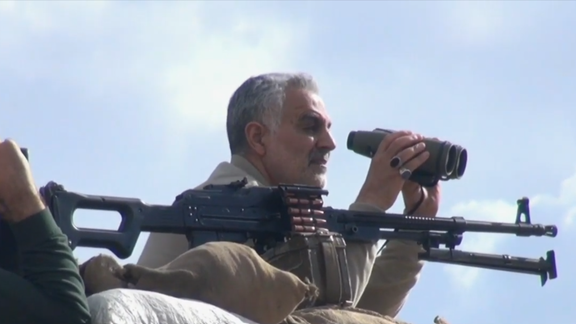
Reports say schoolchildren in some mosques in the UK were taught special lessons in praise of Iranian IRGC Quds Force commander Qassem Soleimani.
At least six mosques across the country organised events to honour the former Commander of IRGC Quds Force as a “martyr” after he was killed.
On January 3, 2020, the US military, on the order of President Donald Trump, killed Soleimani in a drone strike near Baghdad International Airport, saying that he had been "actively developing plans to attack American diplomats and service members in Iraq and throughout the region."
Photographs posted on social media show children sitting in an unnamed mosque while being taught about Soleimani.
Reports say at the Idara-e-Jaaferiya mosque in Tooting, South London, and in Hammersmith, West London, Iranian officials made speeches praising the IRGC commander days after his death.
In Manchester, the Islamic Institute said it was holding a “commemoration of the martyrs” killed by “the aggressor and criminal US regime”.
In Birmingham, the Imam Reza Centre said it was honouring “our beloved martyrs” Soleimani and Abu Mahdi al-Mohandis, an Iraqi militia commander who died alongside him.
The revelation comes as UK lawmakers voted Thursday to ask the government to designate the IRGC as a terrorist organisation.
Soleimani, who was Iran’s top military and intelligence operator outside its borders, was in charge of supporting and organizing militant proxy forces, including the Lebanese Hezbollah and Iraqi Shiite militia groups that have repeatedly attacked US forces.
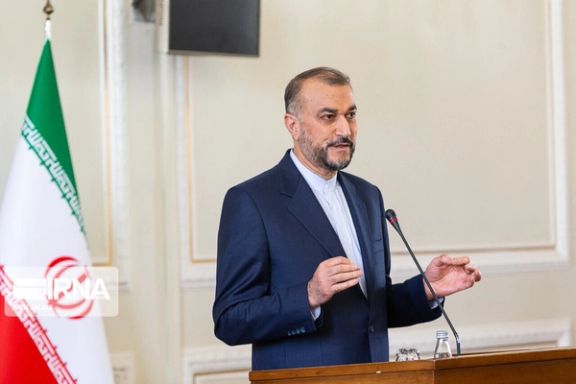
Iran's Foreign Minister Hossein Amir-Abdollahian will visit Moscow next week to meet his Russian counterpart Sergei Lavrov, the Russian Foreign Ministry said on Thursday.
The visit was announced shortly after a phone call between the two countries' presidents.
Russian Foreign Ministry Spokeswoman Maria Zakharova said at a briefing that the two sides will continue to exchange views on several issues, including Iran nuclear deal known as the JCPOA.
“On January 17, Russian Foreign Minister Sergey Lavrov will hold talks with his Iranian counterpart, who will be in Moscow on this day on a working visit. During the talks, the sides are expected to continue an interested exchange of views on a number of topical international and regional topics, including the situation around the JCPOA on the Iranian nuclear deal, and interaction between the two countries at international platforms, including the UN, the SCO, the situation in Syria, Afghanistan, the Caucasus Region and the Caspian issue,” TASS quoted Zakharova as saying.
“There are plans to discuss the bilateral agenda, primarily its trade and economic component in the context of the implementation of key joint projects in energy, transport and other sectors, including taking into account the transition to the final phase of the negotiation process to conclude a full-fledged agreement on a free-trade zone between the EAEU and Iran,” she underlined.
Military ties have expanded between the two countries since the start of the Ukraine war, with Tehran supplying kamikaze drones to Moscow to use in its invasion.
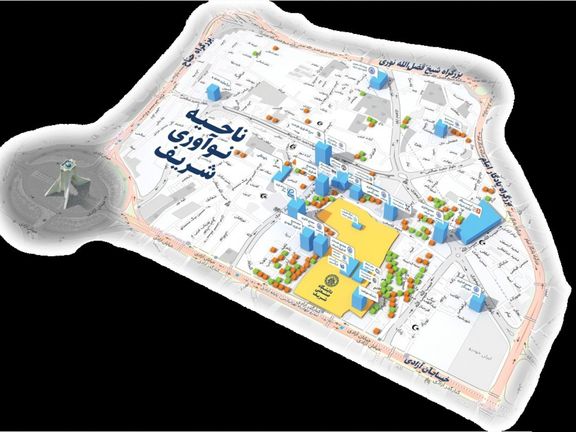
Iran's government has established an office to boost science and technology companies, while it has been disrupting access to the Internet, harming the sector.
An article published by Aftab News in Tehran on December 10 shed some light on some of the activities of the center, which received a handsome budget by Iranian standards after Supreme Leader Ali Khamenei last year called on officials to promote science-based companies.
Usually, Khamenei hears something from his advisors and issues some general and vague instructions to the country’s authorities to strengthen an industry or a certain sector of the economy. Such remarks are then interpreted as unquestionable orders and officials or factions start competing for a piece of the budget. Promoting knowledge-based firms and start-ups is among these contentious issues.
While the achievements of traditional government departments are more measurable, knowledge-based outfits have no touchstone to be measured against because such activities are new for the bureaucracy and authorities do not clearly know what to expect from them.
The actions of the Presidential Office of Science and Technology with a budget of nearly 30,000 billion rials (about $7.5 million in today’s exchange rates - much more last year) and numerous credit lines, is not out in the open and subject to scrutiny for the public, unlike for instance the ministries of energy, health or education. Therefore, few people are aware of how such an astronomical budget in rials is spent.
Since Khamenei included the adjective “knowledge-based” in the motto of the current Iranian year (which started March 21), the most important thing that occurred is that many companies redesigned or reintroduced themselves as such to take advantage of loans and incentives available from the government.
According to a UNESCO report, by 2020, 49 innovation accelerators had been established in Iran with private equity and 113 innovation centers had been set up in partnership with science parks and major universities.
According to Aftab News, Vice President for Science and Technology Rouhollah Dehghani Firouzabadi has recently toured Sharif Science and Technology Park, where it is supposed to be housing nearly 600 companies, 19 accelerators, 15 investment funds, and 10 innovation centers. But the situation is not like the start-up atmosphere at all. Instead, there are a lot of empty halls with many computers and no operators. The hub, which was boastfully presented as the beating heart of Tehran in the field of technology and innovation ecosystem, looks like an abandoned and bankrupt business center.
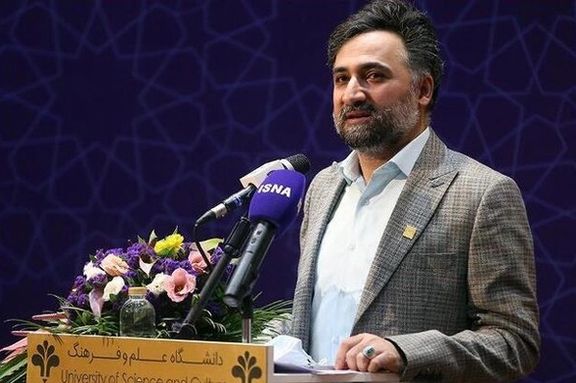
Firouzabadi, appointed in September, said the country’s problems will be resolved if decision-makers are chosen from among the scientific elite, adding that “I believe I need to delegate powers to managers because a specialized manager will be more knowledgeable about his field than I am.”
Currently, more than 7,900 knowledge-based companies are registered but, according to people in the sector, most of them are not active or are doing something different from what they were supposed to do.
The presidential outfit, which has recently rebranded itself with a longer title to include science-based economy, has even outsourced its most important job to companies from the private sector. Its most important task used to be identifying whether a company is science-based or not, and now this task is carried out by contractors.
Companies that seek to apply to be registered as knowledge-based – to be able to use its advantages -- should be evaluated in terms of product and corporate frameworks. Now, there are a large number of evaluators and brokers from the private sector. It is not clear how such contractors are selected or if they are connected to government insiders. Such a system is prone to nepotism and corruption and there is no supervision over it.
One of the noteworthy activities of the center is organizing the so-called science and technology tours to countries like Turkey and France. While many start-ups and tech companies as well as people active in such fields are emigrating in the last 18 months due to inflationary stagnation and widespread poverty in Iran, such luxurious tours aimed at “connecting the researchers of the Islamic world" seem suspicious, says Aftab News.
Another way that the center is spending its extravagant budget is holding online workshops and seminars, which are usually held with only a handful of participants because the instructors are chosen based on their close connections to the authorities and not based on their expertise.
There is also an inherent contradiction in promoting new technologies, while at the same time restricting internet access to the public to control the flow of information about the current wave of antigovernment protests.
On Monday, Mojtaba Tavangar, the chairman of the Digital Economy Committee of the parliament, wrote to Raisi asking him to restore access to the Internet and to establish a fund to compensate for the damage caused to businesses. New figures show that due to extensive internet and social network restrictions, 20 percent of people in Iran have lost their online jobs in the past four months.
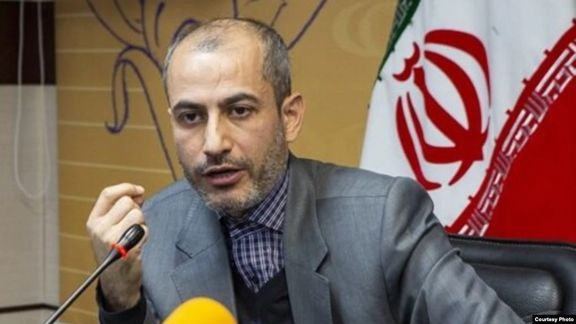
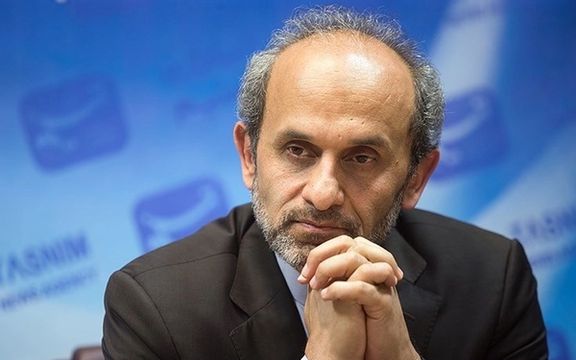
The head of Iran's state broadcaster Peyman Jebelli has dismissed the defection of his two brothers interviewed by Iran International Tuesday.
In a video message he released on social media Wednesday, Peyman Jebelli said he had seen his brother’s interview, adding that such incidents were not unprecedented.
The chief of the IRIB, the key state propaganda machine, also tried to raise suspicion over his brother’s remarks in the interview suggesting that Meysam (Maysam) may have been under some kind of pressure, purportedly by a foreign government or group. “I’m not sure he made these comments knowingly and of his own volition.”
The interview followed the Time’s disclosure Tuesday that one of the IRIB chief’s brothers, Meysam had defected in early 2020 along with another brother, Meghdad, and that they had sought asylum after their nephew Mohammad-Amin’s tragic death in IRGC's downing of a Ukrainian airliner on January 8, 2020.
The report and subsequent information did not indicate where the brothers asked for asylum. The United States and Canada are the two most likely countries.
The IRGC fired two missiles at Flight PS752 only minutes after it took off from Tehran’s Imam Khomeini Airport amid heightened tensions between Iran and the United States after firing dozens of ballistic missiles at a US military base in Iraq in retaliation of the targeted killing of Qods force commander Qassem Soleimani.
Supreme Leader Ali Khamenei appointed Peyman Jebelli, a close associate of his son Mojtaba, as the head of the IRIB, in September 2021. Jebelli was designated by the United States in November and by Canada in October for his role in the regimes violations of human rights including airing of confessions extracted under torture.
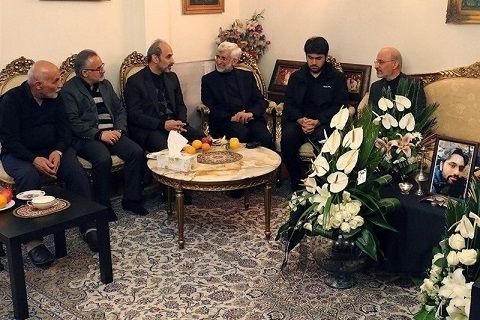
Jebelli’s nephew, the 29-year-old Mohammad-Amin who was among the 176 passengers of the flight, had been pursuing a Master of Health Science at the University of Toronto since 2018. Not only his uncle but his own father, Mohammad Jebelli, also chose to take the regime’s side over the incident.
The tragic death, however, did not shake the loyalty of Mohammad-Amin’s father and his uncle, Peyman Jebelli, to the regime and they chose to remain silent about the IRGC’s responsibility in the incident, Meysam told Iran International. “He stepped in his own son’s blood,” Meysam says.
When Meysam tried to convince his brother Peyman that the plane had been struck by missiles as video footage that emerged on social media indicated, the IRIB chief denied the authenticity of the footage and claimed it showed Israeli air defense exercises.
When the truth came out three days later and Meysam confronted him again, the IRIB chief only said “Good for you that you realized that [before its public announcement]!”
Meysam says he was not pro-regime like his other brothers but after the downing of the plane, which he calls “murder by the Islamic Republic”, he decided to openly denounce the regime. “It was time to take sides.”
In a tweet after Meysam’s disclosure of his and his brothers’ disputes over the incident, Canada-based activist Hamed Esmaeilion, whose daughter and wife were killed in the crash, revealed that the two Jebelli brothers who have defected have been members of an association seeking justice for the victims of Flight PS752 for a long while.
“What matters about the Jebelli brothers, Meysam and Meghdad, … is not defection but their choosing the right side of the history. They did not remain silent,” Esmaeilion wrote.
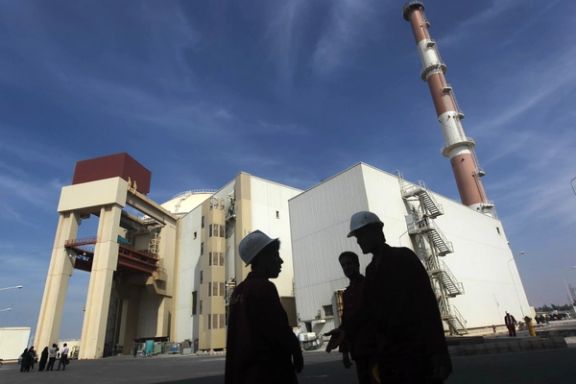
Saudi Arabia plans to use domestically sourced uranium to build up its nuclear power industry, energy minister Prince Abdulaziz bin Salman said on Wednesday.
He added that recent exploration had shown a diverse portfolio of uranium in the Arab state, the world's top oil exporter.
Saudi Arabia has a nascent nuclear program that it wants to expand to eventually include uranium enrichment, a sensitive area given its role in nuclear weapons. Riyadh has said it wants to use nuclear power to diversify its energy mix.
It is unclear where its ambitions end, since Crown Prince Mohammed bin Salman said in 2018 that the kingdom would develop nuclear weapons if regional rival Iran did.
"The kingdom intends to utilize its national uranium resources, including in joint ventures with willing partners in accordance with international commitments and transparency standards," Abdulaziz bin Salman said.
He told a mining industry conference in Riyadh that this would involve "the entire nuclear fuel cycle which involves the production of yellowcake, low enriched uranium and the manufacturing of nuclear fuel both for our national use and of course for export".
Atomic reactors need uranium enriched to around 5% purity, but the same technology in this process can also be used to enrich the heavy metal to higher, weapons-grade levels.
This issue has been at the heart of Western and regional concerns about Iran's nuclear program and led to the 2015 deal between Tehran and global powers that capped enrichment at 3.67%.
The pact unraveled after then-President Donald Trump exited the deal in 2018, and efforts to salvage the agreement have stalled since September.
Reporting by Reuters